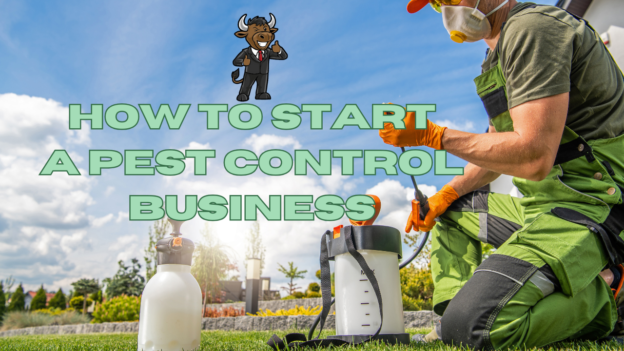Starting a pest control business can be a lucrative venture if done correctly. Here’s a step-by-step guide to help you get started:
- Research and Market Analysis:
- Industry Research: Understand the pest control industry in your area. Learn about the types of pests prevalent, the competition, and the demand for pest control services.
2. Business Plan:
- Create a Business Plan: Outline your business goals, target market, pricing strategy, and financial projections. A well-thought-out business plan is essential for securing financing and guiding your business.
3. Legal Requirements:
- Business Structure: Decide on the legal structure of your business (e.g., sole proprietorship, LLC, corporation) and register it accordingly with your local government.
- Licensing and Permits: Check the licensing and permit requirements for pest control businesses in your area. Compliance with local, state, and federal regulations is crucial.
4. Insurance:
- Obtain Insurance: Purchase liability insurance and any other necessary insurance policies to protect your business from potential lawsuits and liabilities.
5. Training and Certification:
- Get Certified: Depending on your location, you may need certification or licenses to perform pest control services. This often involves passing exams and meeting specific training requirements.
6. Equipment and Supplies:
- Purchase Equipment: Invest in the necessary pest control equipment and supplies. This includes chemicals, traps, safety gear, and vehicles if needed.
7. Business Location:
- Choose a Location: Decide whether you’ll operate from a physical office or work from home. Consider factors like accessibility and proximity to your target market.
8. Marketing and Branding:
- Create a Brand: Develop a strong brand identity, including a memorable logo and company name.
- Website: Create a professional website that showcases your services, pricing, and contact information.
- Online Presence: Utilize online marketing strategies such as SEO, social media, and paid advertising to reach potential customers.
- Networking: Build relationships with local real estate agents, property managers, and other businesses that can refer clients to you.

9. Pricing Strategy:
- Set Pricing: Determine your pricing structure. Consider factors like the type of pests, the extent of infestation, and the size of the property when quoting prices.
10. Staffing:
- Hire Technicians: If needed, hire experienced pest control technicians. Ensure they are properly trained and certified.
11. Customer Service:
- Deliver Exceptional Service: Provide excellent customer service to build a positive reputation and generate referrals.
12. Record Keeping:
- Maintain Records: Keep detailed records of all pest control jobs, expenses, and income for tax purposes and business analysis.
13. Safety and Compliance:
- Safety Protocols: Implement strict safety protocols for your employees and customers when using pesticides and handling pests.
14. Scale Your Business:
- Expand: As your business grows, consider expanding your services or entering new markets.
15. Stay Informed:
- Continuous Learning: Stay updated with the latest pest control techniques, regulations, and technologies through training and industry publications.
16. Customer Feedback:
- Seek Feedback: Ask for feedback from customers to improve your services continuously.
17. Advertise Your Business:
- Advertise Locally: Use local advertising methods like flyers, door hangers, and local directories.
Starting a pest control business requires careful planning, dedication to customer satisfaction, and adherence to industry regulations. Over time, with effective marketing and quality service, you can build a successful and profitable pest control business.

Comments are closed